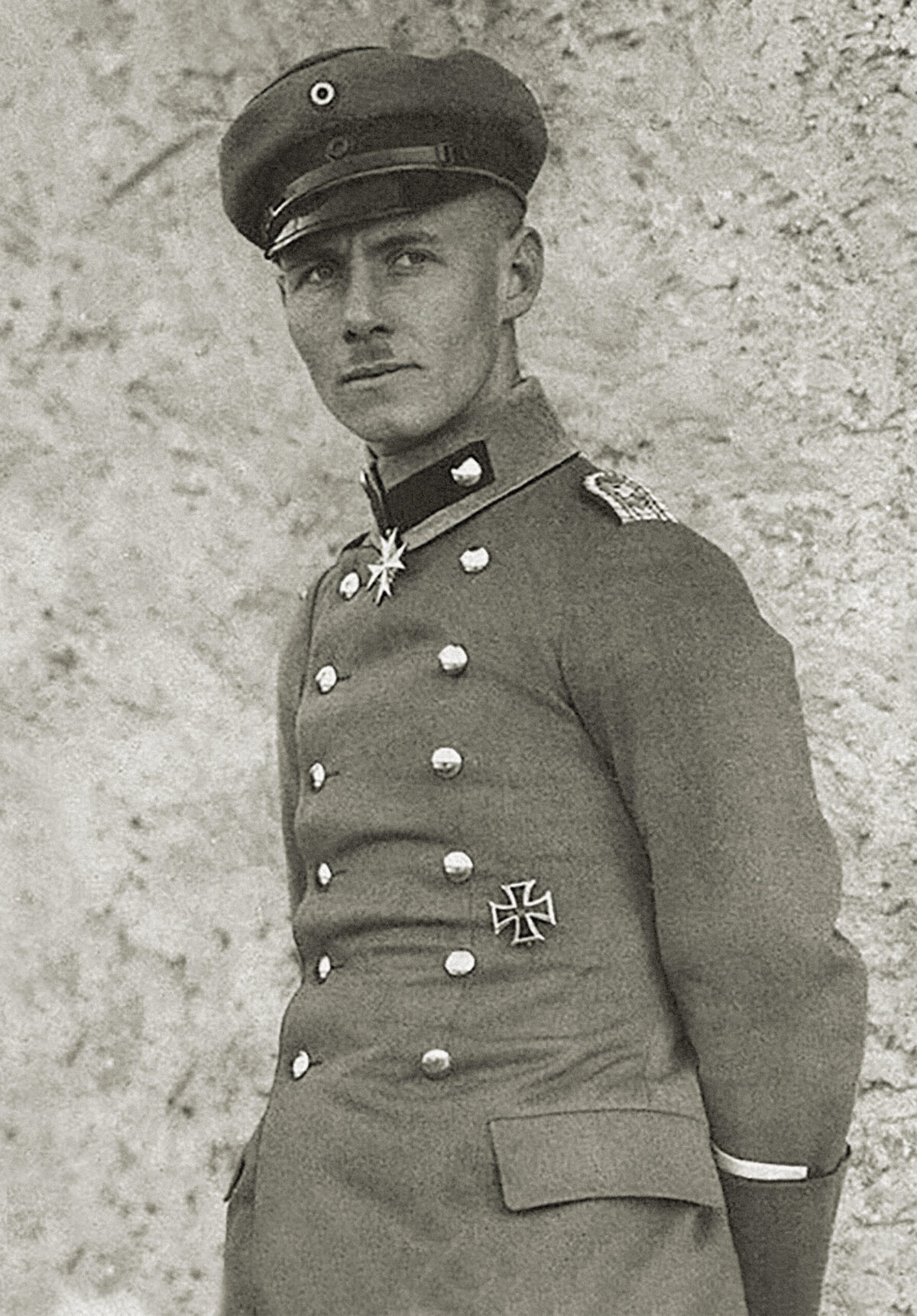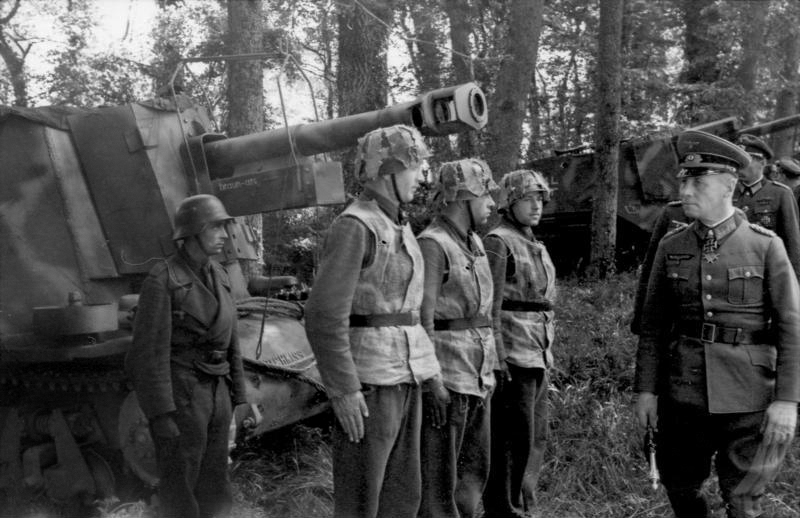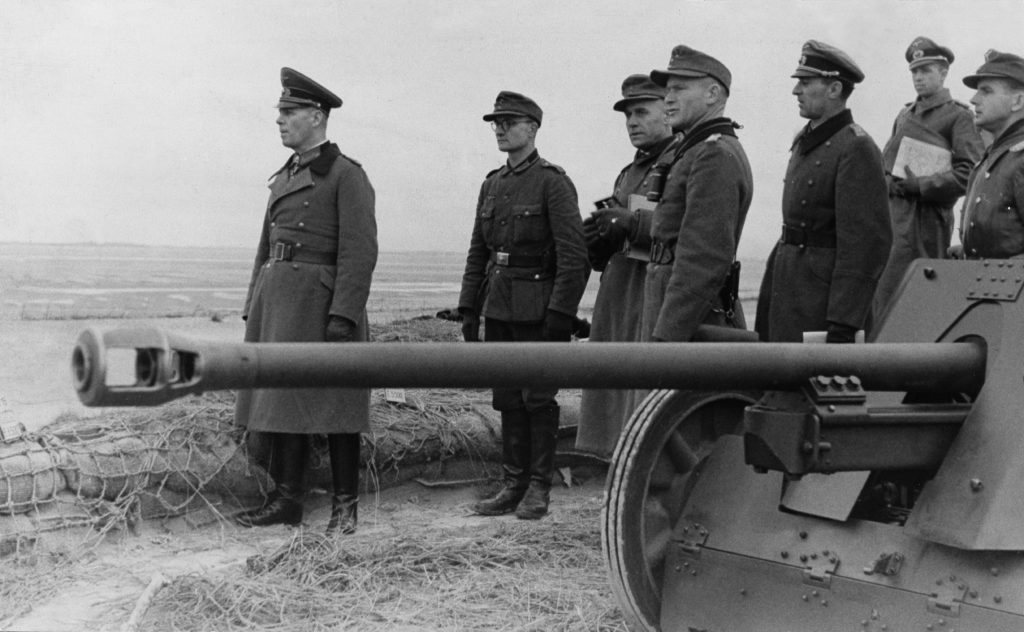Morning has broken on Oct. 25, 1917 after a stormy night in the mountains on the border of Italy and Slovenia. The Tolmein Offensive has begun; the 12th Battle of the Isonzo looms on the horizon. You are Erwin Rommel, a 25-year-old German Oberleutnant serving in the Württemberg Mountain Battalion, a unit of crack mountain troops. Having proven your abilities in the field, you have been appointed to the battalion staff and have been placed in command of your own detachment.
Recommended for you
After bringing you up to meet him on the foothills of a huge mountain called Hevnik, your commanding officer orders you to sally forth as the advance guard of the battalion. The enemy is still in possession of the high ground on Hevnik’s peak. The Royal Bavarian Infantry Lifeguards Regiment—your comrades and sometime rivals—will be pressing forward on your left. You are to head north along the mountain slopes towards the village of Foni; you’ll be in the middle of a dense forest with zero artillery support and tasked with clearing out any enemies on your own. Your orders state: “The day’s goal is to push forward continuously to the west with no limits on space or time, knowing that you will have strong reserves next to and behind you.”
Your mission is beset with difficulties. Unceasing rain soaks everyone to the bone. Ascending a steep mountainpath overgrown with bushes, your field of vision is reduced; it isn’t long before your troops make contact with enemy Italians holed up in the woods, who immediately unleash machine gun fire at close range, wounding five of your point men. After sending a report back to warn your commander, you keep going—you try climbing straight up a slippery stony canal to bypass the enemy and their machine guns. It’s a disaster. You and several comrades are nearly crushed to death by a huge boulder accidentally dislodged by your point men. You manage to dodge the boulder, but then an avalanche of heavy mountain rocks crushes your foot, wracking you with pain and making it impossible for you to walk without the help of two soldiers.
It is now, of all times, that you stumble across a hidden mountain trail leading down to a concealed enemy position, fortified with barbed wire, stretching like a spiderweb through the mountains. Nobody expected this to be here. You and your troops are first to discover it. It looks to be linked up to the enemy strongpoint in the forest where machine guns wounded your men not long ago. As the advance guard of your battalion, you ought to do something. You move into a basin ahead of the enemy position and consider your tactical options. What is your next move?
1. Stay put.
Your injured foot is a problem; you can’t walk without help. Advancing or retreating, you risk becoming a burden to your men. Instead of dragging yourself further through the mountains, you can solidify your position near the enemy line. Dig in with your troops. Send a courier back to inform your commanding officer about the hidden enemy position and request additional instructions. Since things look formidable, you might possibly request extra support. The fierce Bavarian Life Guards would probably be glad to help you.
2. Attack the enemy position head-on.
You can’t help but notice that this ominous area actually looks like a juicy target. The Italians are not expecting your arrival and don’t seem to be doing a good job of sentry duty; in fact they seem like sitting ducks. There is however one big problem—even assuming you could sail past the enemy’s wall of hideous barbed wire obstacles, you can’t quite sneak through the 60-plus yards of thick undergrowth ahead of that. Even a lazy sentry would hear or notice your movement from far off.
3. Find a detour and break in.
If you’re prepared to forget about your broken foot, or at least lean more heavily on the goodwill of your comrades, you might be able to scout a different route from which to surprise the enemy. The Italians haven’t seen you yet; act fast enough and you might be able to sucker punch them in grand style. Failure of course is a possibility. You haven’t been able to do thorough reconnaissance and your enemies might have some nasty surprises up their sleeves. Plus, if you do manage to pull off your attack, you’ll have to decide quickly whether to roll the enemy position uphill, downhill, or fight your way up to Hevnik’s peak itself. It’s risky. Making the wrong choice about how to use your momentum could have unintended consequences in the grand scheme of things.
What is your decision, Oberleutnant Rommel?
You’ve never been the type to just accept things as they are. You are practically allergic to passivity. You’re hellbent on attacking, even if you have to rush into the breach on crutches. But your spunk isn’t the product of mere bravado. There is actually method to your madness. You choose Option 3. You decide to surprise the enemy not by charging the wire but by simply following the enemy’s hidden trail right up to their position—a soft spot, and the very place where you are least expected. You estimate that if your soldiers saunter confidently down the path like they’re going for a stroll in the park, the sentries might mistake them for friendlies at first, and by the time the Italians realize they’re in danger, it will be too late. To avoid gambling your whole detachment, you’ll do a test run with a patrol. You would lead this patrol yourself in any other circumstance, but since you can’t walk without assistance, you task a trustworthy subordinate to lead this daring scheme, promising him that you will rush to his aid with all your remaning men if he is attacked.
Outcome
What follows is dazzling success. Your patrol captures 17 prisoners and penetrates the Italian position. You follow up quickly with your entire detachment. You’re through the line! As to what direction you should concentrate your force? Hevnik’s peak! You decide to take the highest ground you can since other enemies nested on the mountain slopes below will then be at a disadvantage and have a hard time getting rid of you. Notwithstanding your injury, you climb up the mountain in pouring rain with your men, assisted by your comrades. Enemies are so startled by your ghostly appearance that they either surrender or scatter at once. Making contact with your Bavarian comrades, you press onward and successfully take the peak at noon. Aside from enemy weapons, you’ve captured hot meals fresh from Italian field kitchens for your hungry men—a major morale boost for everyone. You have also, amazingly, captured a mountain stronghold without a battle.









